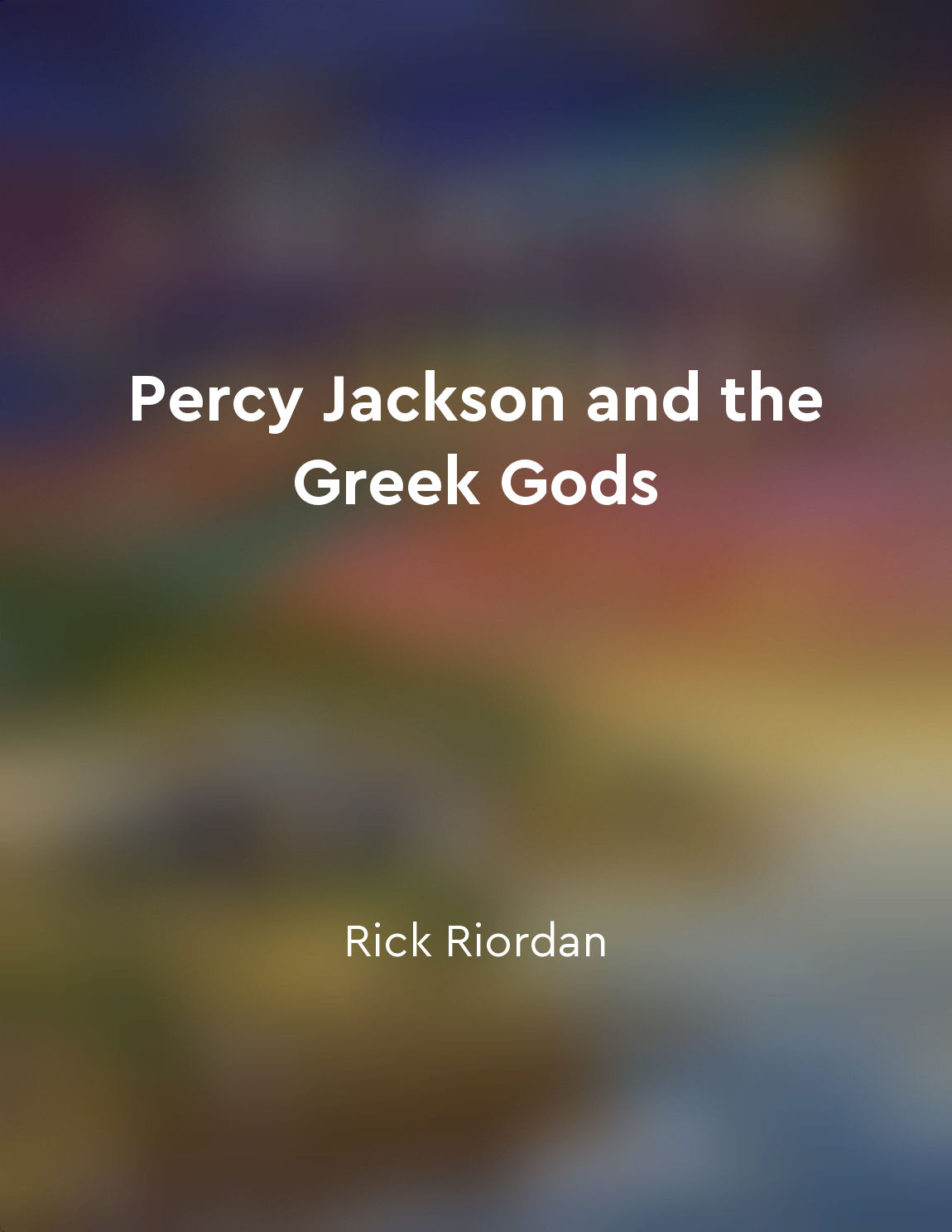Hermes is the messenger of the gods from "summary" of Percy Jackson and the Greek Gods by Rick Riordan
Hermes, the son of Zeus and the nymph Maia, is a unique figure in Greek mythology. Known for his speed and cunning, Hermes plays a crucial role as the messenger of the gods. This means that he is responsible for delivering messages between the deities, as well as between gods and mortals. With his winged sandals and helmet, Hermes is able to travel swiftly and efficiently, ensuring that important communications reach their intended recipients in a timely manner. In addition to his role as a messenger, Hermes is also associated with a variety of other domains. He is the god of commerce, trade, and thieves, reflecting his versatility and adaptability. Hermes is often depicted as a trickster figure, using his wit and cleverness to outsmart his opponents and achieve his goals. This duality of roles – messenger and trickster – adds depth and complexity to Hermes' character, making him a fascinating figure in Greek mythology. Hermes' reputation as a messenger is further enhanced by his role as the guide of souls to the underworld. In this capacity, he leads the deceased to the realm of Hades, ensuring that they reach their final destination safely. This aspect of Hermes' character highlights his importance not only in the world of the living, but also in the realm of the dead. By serving as a guide to the underworld, Hermes demonstrates his ability to navigate between different worlds and bridge the gap between the mortal and divine realms.- Hermes' role as the messenger of the gods is central to his character and identity in Greek mythology. Through his swift delivery of messages, his clever tricks, and his guidance of souls, Hermes embodies the interconnectedness of the divine and mortal worlds. As a multifaceted figure with a range of responsibilities and abilities, Hermes stands out as a unique and intriguing deity in the pantheon of Greek gods.
Similar Posts
Aeneas rallies his troops
Aeneas, the valiant leader of the Trojans, stood tall amidst the chaos of battle. His eyes blazed with determination as he surv...
Apollo embraces his humanity and vulnerabilities
In his new mortal form, Apollo is stripped of his godly powers and forced to face the reality of his humanity. He is vulnerable...
Wrath of the gods
The gods were angry, their wrath burning like a flame that consumes all in its path. They looked down upon the mortals, their j...
Aeneas is tested by the gods
Throughout the epic poem, Aeneas is constantly faced with challenges and obstacles that test his courage, loyalty, and determin...
Mythic stories connect us to our ancestors
Mythic stories have been passed down through generations, carrying the wisdom and experiences of our ancestors. These tales ser...
Wanderings of Odysseus
The long-suffering man, Odysseus, faced many trials and tribulations on his journey home from the Trojan War. His wanderings to...


